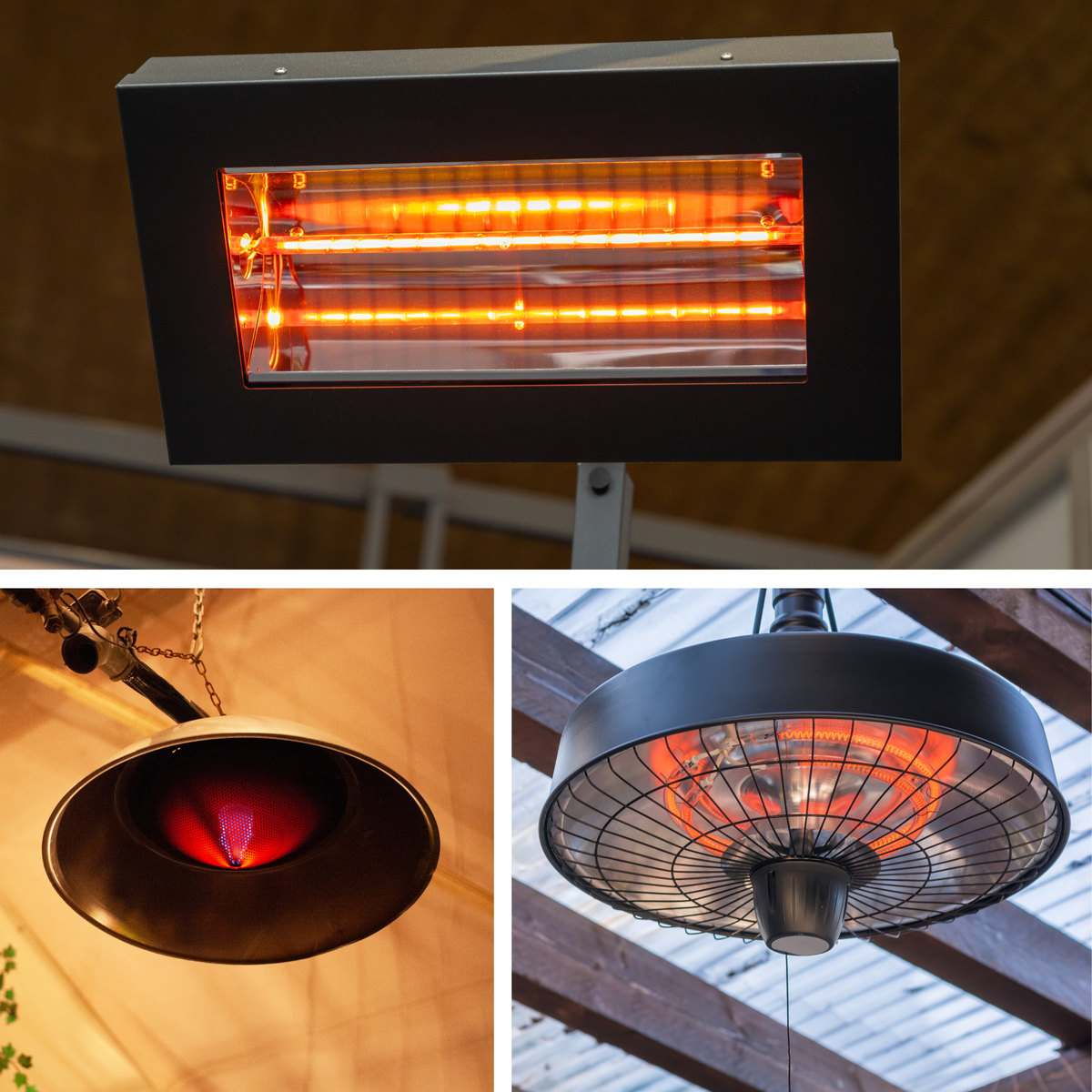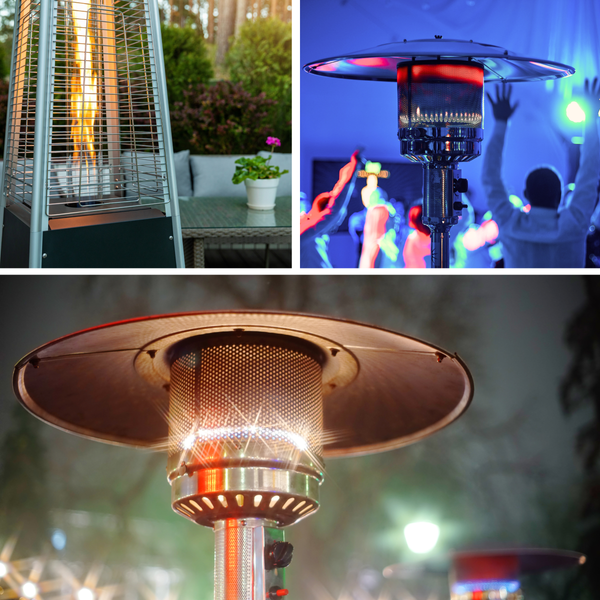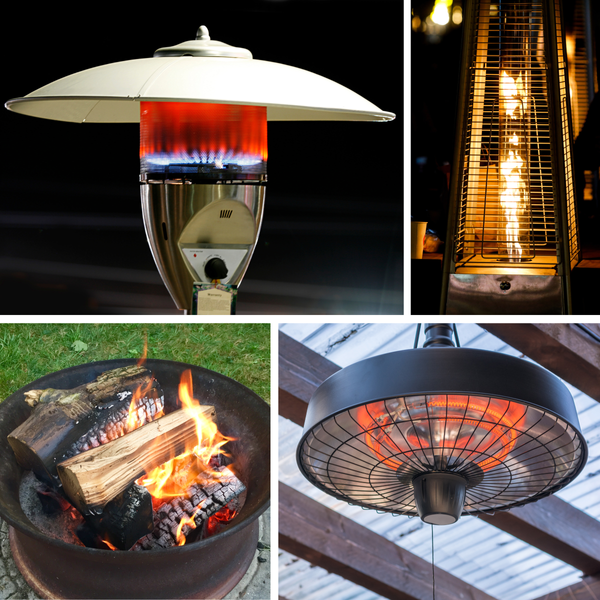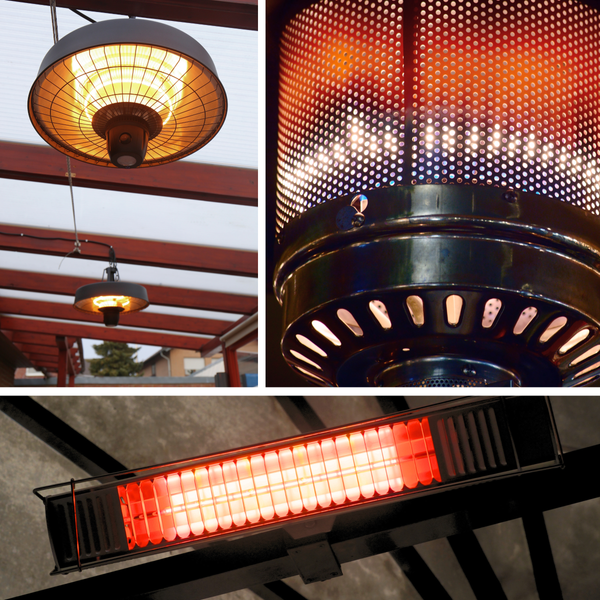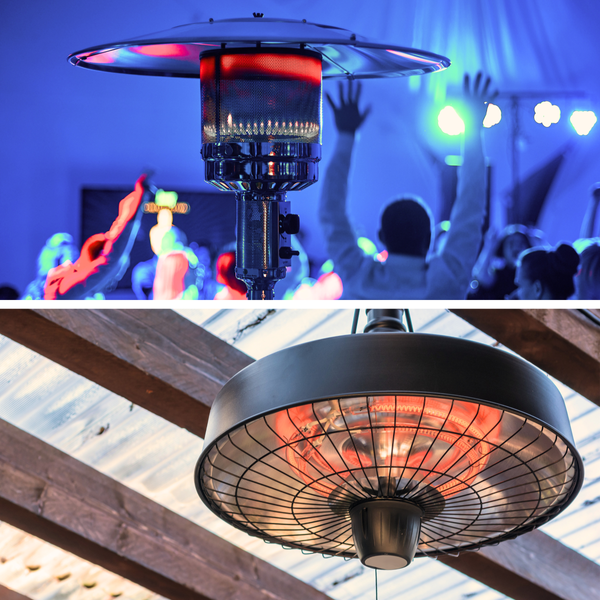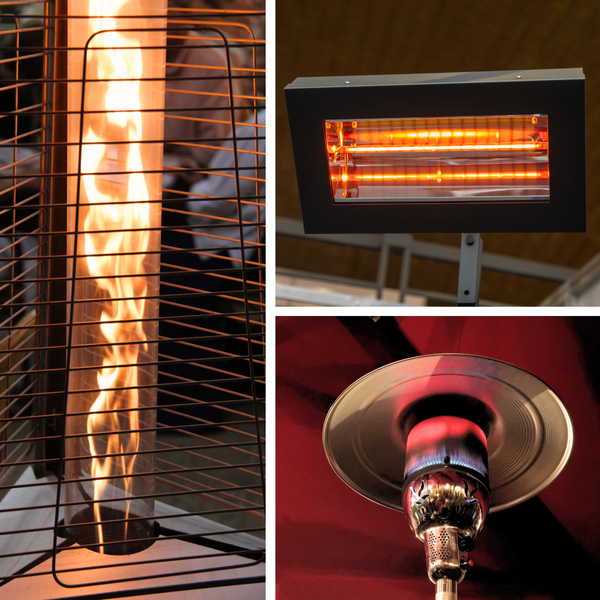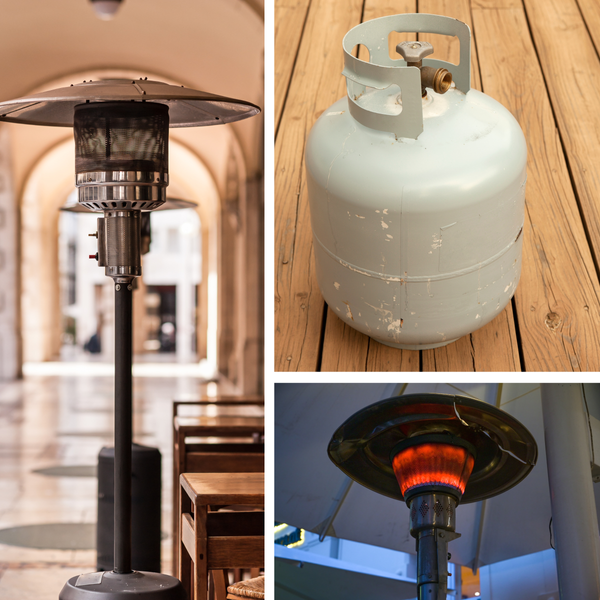Key Takeaways:
- Electric patio heaters can vary in electricity usage, but many models are designed to be energy efficient.
- Comparing electric heaters with gas patio heaters is crucial to determine the most economical choice for your outdoor space.
- Understanding the specifics of electricity costs and heat output can help you save money and enjoy your patio from early autumn to late spring.
Outdoor living spaces have become extensions of our homes, and as such, many homeowners are looking for ways to make their patios comfortable throughout the year. A prime concern for many is the cost associated with heating these areas, especially when it comes to electricity usage. In this article, we'll explore whether electric patio heaters use a lot of electricity and how they compare to other heating options.
Electric Patio Heaters: How Much Electricity Do They Use?
Electric patio heaters are extremely popular for their convenience and ease of use. But how much electricity do they consume? The answer isn't straightforward, as it depends on the specific model and its wattage. Generally, electric outdoor heaters, including electric infrared heaters, are designed to be energy efficient. They convert almost all the energy they use into heat, minimizing waste. However, the electricity usage costs can add up, depending on how often and how long the heater is operating.

Gas vs. Electric: A Cost Comparison
When considering electric outdoor patio heaters, it's essential to compare them with gas options like propane heaters and natural gas heaters. Gas patio heaters often require propane tanks or gas canisters, which can be less convenient but might offer major weekly savings in terms of running costs. Natural gas heaters, on the other hand, can be hooked up to your home's gas line, providing a continuous supply of fuel and potentially lower energy costs over an annual period.
Heat Output and Efficiency
The heat output of electric outdoor heating models is measured in watts, and this can range from a modest 1,500 watts to powerful 5,000 watts or more. The higher the wattage, the greater the heat output, and consequently, the higher the electricity costs. However, many electric heaters are designed to be energy efficient, providing a high level of heat without excessive electricity use.
The Impact on Your Electricity Bill
To understand the impact of electric heaters on your electricity bill, you'll need to consider the heater's wattage and your local electricity rates. By multiplying the heater's wattage by the hours of use and then by the electricity rate, you can estimate the electricity usage costs. Keep in mind that portable heaters can be turned off when not needed, which can help control costs.

Alternative Heating Solutions for Your Patio
When considering heating your outdoor space, electric heaters are not the only option available. Fire pits, for instance, have become a popular alternative, offering a cozy ambiance and a natural gathering spot for friends and family. Unlike electric heaters, fire pits can be wood-burning or fueled by natural gas or propane, providing a different kind of warmth that many find more appealing. They can be a central feature in your patio design, and with a variety of styles available, they can fit seamlessly into your outdoor decor.
In addition to fire pits, there are other innovative outdoor heater solutions that can cater to specific needs. For example, infrared heaters are an efficient option that heats objects and people directly, rather than warming the air. This makes them particularly effective in windy conditions where traditional heaters might fall short. For pool areas, specially designed heating systems can extend the swimming season, providing a comfortable water temperature even when the air is cool. For further information on these alternatives, it's worth exploring the range of products that cater to different outdoor heating requirements.
Maximizing Efficiency with Your Outdoor Heater
To get the most out of your electric heater or any outdoor heating system, understanding how to operate them efficiently is key. Heaters operating at their optimal level not only provide the best warmth but also ensure that you're not wasting energy. For electric heaters, this could mean using them with timers or smart systems that only activate the heaters when the area is in use. Positioning is also crucial; placing heaters strategically around your patio can maximize heat distribution and reduce the need to run multiple units simultaneously.
For those looking to heat larger outdoor spaces, such as pool areas or extensive patios, it's important to consider the layout and how heat will flow. Using windbreaks or creating zones can help retain heat where it's needed most. Additionally, layering your heating solutions—combining electric heaters with fire pits, for example—can create a more consistent and comfortable temperature throughout your outdoor space. Always remember to consult the manufacturer's guidelines or seek further information from heating experts to ensure you're using your heating systems effectively and safely.

Outdoor Space Considerations
The type of outdoor space you have can also influence your heating choice. Enclosed spaces may retain heat better, allowing you to use a less powerful heater or operate it for shorter periods. In contrast, open patios may require a more robust heating system to maintain a comfortable temperature during longer evenings.
Environmental Concerns
When choosing between electric and gas patio heaters, it's also worth considering the environmental impact. Electric heaters, when powered by renewable energy sources, can have lower carbon dioxide emissions compared to gas heaters. This makes them a more environmentally friendly option for those looking to reduce their carbon footprint.
Seasonal Use and Savings
Patio heaters are not just for the cold winter months. They can extend the usability of your outdoor space from early autumn to late spring. By selecting an energy-efficient model and using it judiciously, you can achieve significant savings while enjoying the fresh air during cooler times of the year.

The Verdict on Electricity Usage
So, do patio heaters use a lot of electricity? It depends on the model and how you use it. Electric outdoor heaters can be an economical choice based on their energy efficiency and the convenience they offer. However, it's important to assess your specific needs, local area sales manager recommendations, and running costs to make the most economical choice for your patios.
Summary
Electric patio heaters are a convenient and often energy-efficient option for extending the use of your outdoor space. While they do consume electricity, many models are designed to maximize heat output without excessive energy cost. By comparing electric heaters with gas options and considering your specific needs and local electricity rates, you can find a heating solution that offers comfort without high running costs.
FAQ Section
Q: Are electric patio heaters more expensive to run than gas heaters?
A: It depends on the cost of electricity in your area versus the cost of gas. Electric heaters can be more energy efficient, but gas heaters may sometimes offer lower running costs, especially if you have access to natural gas.
Q: Can electric patio heaters be used in enclosed spaces?
A: Yes, electric patio heaters can be used in enclosed spaces as they do not produce carbon dioxide emissions like gas heaters. However, always ensure proper ventilation and follow the manufacturer's safety guidelines.
Q: How can I save money on my electric patio heater's running costs?
A: To save money, choose an energy-efficient model, use the heater only when necessary, and consider using it during off-peak electricity hours if your local area offers lower rates during those times. Additionally, using the heater in enclosed or semi-enclosed spaces can help retain heat and reduce the need for higher wattage or prolonged use.



